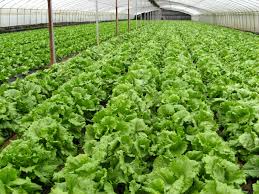
Firstly, introducing Auscrops, a wonderful market vending company bridging farmers and customers together through market vendors. Click here to find more about farm organics as well fruit and vegetable offers.
Farm Organics
Farm-fresh food is not only delicious but also nutritious. With an abundance of vitamins, minerals, and antioxidants, organic fruits and vegetables offer more health benefits than their conventionally grown counterparts. Moreover, organic farming is better for the environment. It helps preserve our natural resources and promote biodiversity. Here are some more benefits of organic farming and some fun facts about it.
Organic Farming Helps Combat Climate Change
One of the main goals of organic farming is to improve soil health. Unlike conventional farming practices that rely heavily on synthetic fertilizers and pesticides, organic farmers use natural methods to replenish the soil. This includes using crop rotation, cover crops, and compost. As a result, organic farms have healthier soils that are able to store more carbon. In fact, a recent study found that if all agriculture in the United States were converted to organic methods, it would sequester enough carbon to cancel out one year’s worth of emissions from the entire country!
Organic Farming Is Good for Your Health
Since organic foods are grown without the use of harmful chemicals, they are often more nutritious than their conventionally grown counterparts. Studies have shown that organically grown fruits and vegetables contain higher levels of vitamins, minerals, and antioxidants. These nutrients are essential for a well-rounded diet and can help reduce the risk of chronic diseases such as heart disease, cancer, and stroke.
Organic Farming Is Better for Wildlife
Organic farms are havens for wildlife. By eschewing the use of synthetic pesticides and herbicides, organic farmers create an environment that is more inviting for bees, birds, butterflies, and other pollinators. Organic farms also provide habitat and corridors for animals to travel safely between natural areas. As a result, organic farms often have higher biodiversity than conventional farms.
Farm Organics Conclusion:
Organic farming offers numerous benefits over conventional farming practices. It helps combat climate change by sequestering carbon in healthy soils. It also provides us with nutritious foods that contain higher levels of vitamins and minerals. Moreover, it supports wildlife by providing habitat and corridors for safe travel between natural areas. If you’re looking for a way to make a difference in the world, consider supporting organic farmers!
Click here to find similar articles.
 Français
Français 











